Credit card networks are essential for managing daily financial transactions. Deciding between Visa and Mastercard can significantly impact your financial experience.
This guide aims to provide a comprehensive comparison to help you make an informed decision between Mastercard vs Visa.
Understanding Visa and Mastercard
Visa, founded in the 1950s, boasts a vast global presence, offering a multitude of services and benefits. On the other hand, Mastercard, established in the 1960s, has built a strong reputation for innovative features and partnerships, catering to diverse consumer needs.
When we talk about payment processing, Visa and Mastercard stand out as the prime network players, engaging across all segments of the payments market. While both operate as network processors, they possess distinct modes of operation and approach.
These two behemoths are publicly traded entities, with Visa (V) commanding a substantial $497.5 billion market capitalization, closely trailed by Mastercard (MA) at $434 billion in 2024.
Visa and Mastercard’s business models align closely; instead of issuing cards directly, they collaborate with financial institutions like banks and credit unions. These partners then distribute cards to individuals and businesses, often in collaboration with prominent brands in the airline, hotel, or retail sectors.
The terms and conditions of the payment cards are determined by the issuing financial institution, covering fees, rewards, and additional features, with the retailer often liaising with a third-party bank. For credit cards, the issuing bank manages underwriting, interest rates, and the design of rewards programs.
Benefits such as identity theft protection, fraud security, car rental insurance, and business purchase discounts can also be offered by card issuers. While the financial institutions dictate variations in interest rates, credit limits, and rewards, Visa and Mastercard compete for co-branded relationships and contribute to the formulation of card terms.
Visa’s Financial Insights
In the fiscal year 2023, Visa showcased its financial prowess, generating a staggering $32.7 billion in net revenue through its robust payments volume. The company’s operational dimensions are categorized into distinct segments:
Service: A significant revenue contributor, amounting to $14.8 billion in 2023.
Data Processing: Another substantial segment, raking in $16.0 billion in the same year.
International Transactions: Garnered $11.6 billion in revenue in 2020.
Other: Representing $2.5 billion in revenue for the year.
Its core product lineup comprises credit, debit, and prepaid cards, along with tailored business solutions and a global network of ATM services. Both Visa and Mastercard heavily rely on service and data processing fees for revenue, albeit with distinctive approaches and fee structures. Service fees, associated with card volume, are levied on the issuer.
Data processing fees, on the other hand, are typically imposed on the issuer, who then recoups these charges by billing merchants for each transaction processed. These fees are usually minimal, fixed expenses, calculated per transaction, intended to offset the expenses linked to transmitting transactional data over the network.
Visa offers these primary card tiers:
Visa Classic
- Features: Widely accepted, ideal for daily transactions, basic travel benefits.
- Suitability: Suitable for individuals seeking a versatile card for everyday purchases, basic travel needs, and global acceptance.
Visa Gold
- Features: Higher spending limits, travel assistance, exclusive offers, and 24/7 customer support.
- Suitability: Ideal for those looking for increased spending power, travel perks, and personalized assistance while enjoying exclusive deals.
Visa Platinum
- Features: Premium benefits, global customer assistance, extensive ATM network, exclusive offers.
- Suitability: Suited for individuals desiring luxury perks, enhanced global support, convenience for cash access, and access to exclusive privileges.
Visa Signature
- Features: Premium rewards, concierge services, travel perks, exclusive events.
- Suitability: Tailored for those seeking upscale rewards, dedicated concierge services, travel benefits, and invitations to exclusive events.
Visa Infinite
- Features: Elite rewards, luxury benefits, personalized services, and extensive travel perks.
- Suitability: Designed for high-net-worth individuals, offering top-tier rewards, luxury experiences, bespoke services, and unparalleled travel benefits.
Mastercard’s Financial Insights
Mastercard generated a total of $25.098 billion in revenue from processing payments, in the year 2023. They offer various cards like credit, debit, and prepaid cards, along with business solutions. Their main business segment is called Payment Solutions, divided by regions in the United States and other countries.
Like Visa, Mastercard mostly makes money through service and data processing fees. Service fees are based on a percentage of the total money processed globally. Data processing fees, known as “switching fees,” are fixed costs per transaction charged to the bank issuing the card.
Mastercard is known for offering the following types of cards:
Standard Mastercard
- Features: Basic card with standard benefits, widely accepted for daily use.
- Suitability: Ideal for individuals seeking a simple payment solution for everyday purchases, offering basic conveniences and broad acceptance.
Platinum Mastercard
- Features: Enhanced benefits, higher spending limits, exclusive perks, and travel assistance.
- Suitability: Suited for those desiring increased spending power, premium perks, and personalized support, catering to individuals pursuing luxury and additional benefits.
World Mastercard
- Features: Premium travel perks, discounts, and concierge services.
- Suitability: Designed for frequent travelers and individuals looking for elevated travel experiences, offering exclusive travel benefits and services.
World Elite Mastercard
- Features: Luxury rewards, premium services, exclusive amenities, and personalized experiences.
- Suitability: Tailored for high-net-worth individuals seeking top-tier benefits, luxury privileges, and personalized services, offering an elite and sophisticated payment experience.
Card Options in Brazil
Top Visa Card Options in Brazil:
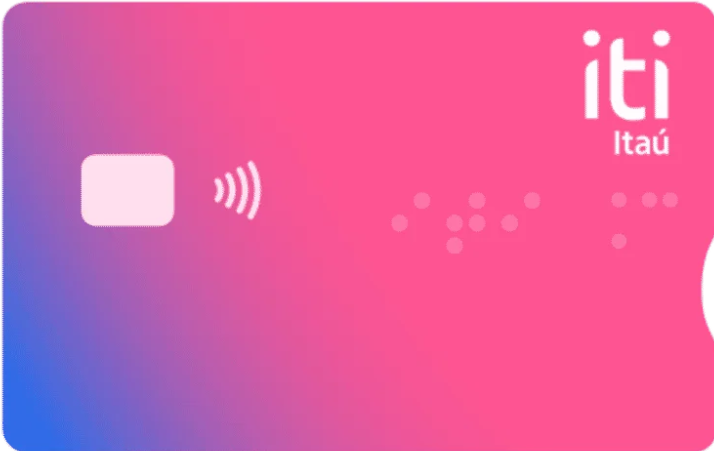 Iti Itaú: Iti Itaú offers a digital wallet service by Itaú Unibanco, providing users with a range of Visa card options for convenient and secure transactions.
Iti Itaú: Iti Itaú offers a digital wallet service by Itaú Unibanco, providing users with a range of Visa card options for convenient and secure transactions.
 Bradesco Like: Bradesco Like, associated with Banco Bradesco, offers Visa card options with various perks and benefits tailored to meet customers’ financial needs and preferences.
Bradesco Like: Bradesco Like, associated with Banco Bradesco, offers Visa card options with various perks and benefits tailored to meet customers’ financial needs and preferences.
 Petrobras: With Visa partnership, Petrobras offers co-branded credit cards to customers, combining benefits related to fuel purchases, loyalty rewards, and other exclusive perks.
Petrobras: With Visa partnership, Petrobras offers co-branded credit cards to customers, combining benefits related to fuel purchases, loyalty rewards, and other exclusive perks.
Top Mastercard Card Options in Brazil:
 Nubank: Nubank provides Mastercard credit cards known for their digital-first approach, user-friendly features, and customizable benefits, catering to modern banking needs.
Nubank: Nubank provides Mastercard credit cards known for their digital-first approach, user-friendly features, and customizable benefits, catering to modern banking needs.
 PicPay Card: PicPay Card, associated with PicPay digital wallet, offers Mastercard debit cards packed with innovative features, cashback rewards, and a seamless payment experience.
PicPay Card: PicPay Card, associated with PicPay digital wallet, offers Mastercard debit cards packed with innovative features, cashback rewards, and a seamless payment experience.
 C6 Bank: C6 Bank presents Mastercard credit and debit card options with diverse benefits, including personalized services, cashback rewards, and advanced financial management tools for customers in Brazil.
C6 Bank: C6 Bank presents Mastercard credit and debit card options with diverse benefits, including personalized services, cashback rewards, and advanced financial management tools for customers in Brazil.
Evaluating Your Spending Habits and Lifestyle
Budgeting
Start by evaluating your spending behaviors, financial targets, and budget limits to identify which card network suits your financial plan most effectively.
Understanding how much you spend, where your money goes, and your future financial goals can assist in selecting the right card network.
Use Cases
Dig into your credit card usage patterns to determine where and how you predominantly utilize credit cards. This analysis helps in gauging which network offers the most convenience, perks, and benefits that align with your spending habits.
Whether it’s for everyday purchases, travel expenses, or specific categories, recognizing your usage tendencies aids in making an informed choice.
Rewards Preference
Take a closer look at the rewards programs available through Visa and Mastercard to decide which one meshes well with your lifestyle and preferences.
Whether you prefer cashback, travel rewards, or points for specific purchases, understanding the intricacies of each network’s rewards system is crucial in maximizing your benefits and ensuring they align with your preferences.
Travel Benefits
Compare the travel perks and insurance coverage provided by both Visa and Mastercard to ascertain which offerings suit your travel habits. Evaluate features like travel insurance, lounge access, rental car protection, and foreign transaction fees to determine which network provides the most value for your travel needs.
Whether you are a frequent traveler or an occasional vacationer, selecting the card network that aligns with your travel requirements can enhance your overall travel experiences and provide peace of mind during your journeys.
Choosing the Right Card Network
If you like getting discounts when you shop, Visa is a great option for you. It has many benefits you’ll enjoy.
On the other hand, if you love promotions and want extra perks, especially while traveling, then Mastercard is the way to go.
Both cards have special advantages, but Mastercard is known for its great offers and rewards that make traveling more exciting. Visa, on the other hand, is better for getting benefits when shopping and local discounts.
Deciding between Visa and Mastercard is a significant choice that can impact your financial well-being and overall experience with credit cards.

